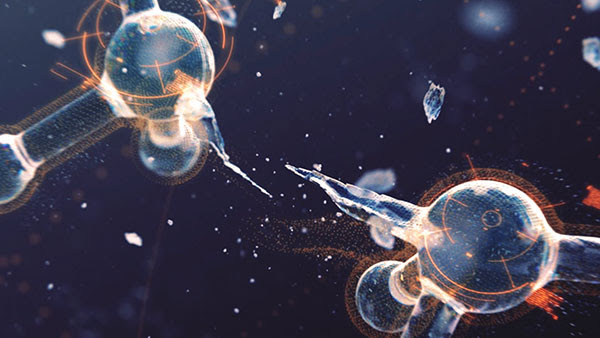3.060 amicor (24)
#Dra. Valderês A. R. Achutti (*13/06/1931+15/06/2021)
Navegando...
Entrevista com o Professor Luiz Eduardo Robinson Achutti
https://doi.org/10.1590/S0104-71832021000300015
#OSPA - Antônio Achutti Olivé Dezembro 11 - 17 h
#The Washington Post (The page of the day I was born)
Resumo do que é o mundo real. Enviado pela Professora Vera Elisabeth Verissimo
|
Mathematicians Transcend Geometric Theory of MotionBy KELSEY HOUSTON-EDWARDS More than 30 years ago, Andreas Floer changed geometry. Now, two mathematicians have finally figured out how to extend his revolutionary perspective.
Read the article |
|
|
|
 | AI Researchers Fight Noise by Turning to BiologyBy ALLISON WHITTEN Tiny amounts of interference can fool neural networks. Some researchers are looking to neuroscience for a fix.
Read the blog
Related:
Machine Learning Confronts
the Elephant in the Room
by Kevin Hartnett (2018) |
 | A Massive Subterranean ‘Tree’ Is Moving Magma to Earth’s SurfacePodcast hosted by SUSAN VALOT;
Story by ROBIN GEORGE ANDREWS Deep in the mantle, a branching plume of intensely hot material appears to be the engine powering vast volcanic activity.
Listen to the podcast
Read the article |
|
DeepMind's Debut in Mathematics
Google’s DeepMind has made its first significant contributions to pure mathematics, Stephanie Pappas reports for Live Science. It has introduced a new conjecture in knot theory and made progress in proving another from representation theory. Automated “theorem provers” have aided mathematicians for a while, and this new work shows that the field’s use of AI is likely to increase in the future. In 2020 Stephen Ornes wrote for Quanta about the field’s possibly AI-centered future.
Confronting a Quantum Cliché
The phrase “shut up and calculate” has long been used to deride physicists who adhere to the anti-realist Copenhagen interpretation of quantum mechanics. For Aeon, Jim Baggott clarifies that the early quantum pioneers in Copenhagen are not to blame for the “dogma of indifference” to the philosophy of quantum mechanics. Recently, researchers have had renewed interest in quantum theory’s implications. In 2020 Anil Ananthaswamy reported for Quanta on a thought experiment that highlighted the peculiarities of quantum mechanics. This is one of a growing number of thought experiments (and real ones) aimed at demystifying the strangeness of the theory.
#Nature briefing
 | | The AI predicts the distribution of electrons within a molecule (illustration) and uses it to calculate physical properties. (DeepMind) | The artificial-intelligence company DeepMind has developed a new machine-learning model to predict the density of a molecule’s electrons — a key step to calculating its physical properties. The algorithm relies on a technique called density functional theory (DFT), which has been hugely successful in chemistry, biology and materials science. But DFT goes a bit wonky in some cases, because it’s not a perfect reflection of the complex quantum mechanics that govern matter. Researchers trained an artificial neural network on data from hundreds of accurate solutions derived from quantum theory, plus some handy laws of physics. The outcome, says DeepMind, is a system that makes more accurate predictions — and, once it’s trained, doesn’t require a supercomputer.
DeepMind will be a familiar name to Briefing readers — recently it teamed up with meteorologists to ’nowcast’ imminent heavy precipitation, helped untangle the mathematics of knots and made a gigantic leap in solving protein structures. Nature | 4 min read
Reference: Science paper |
|
|
|
#Academia SRM
No comments:
Post a Comment